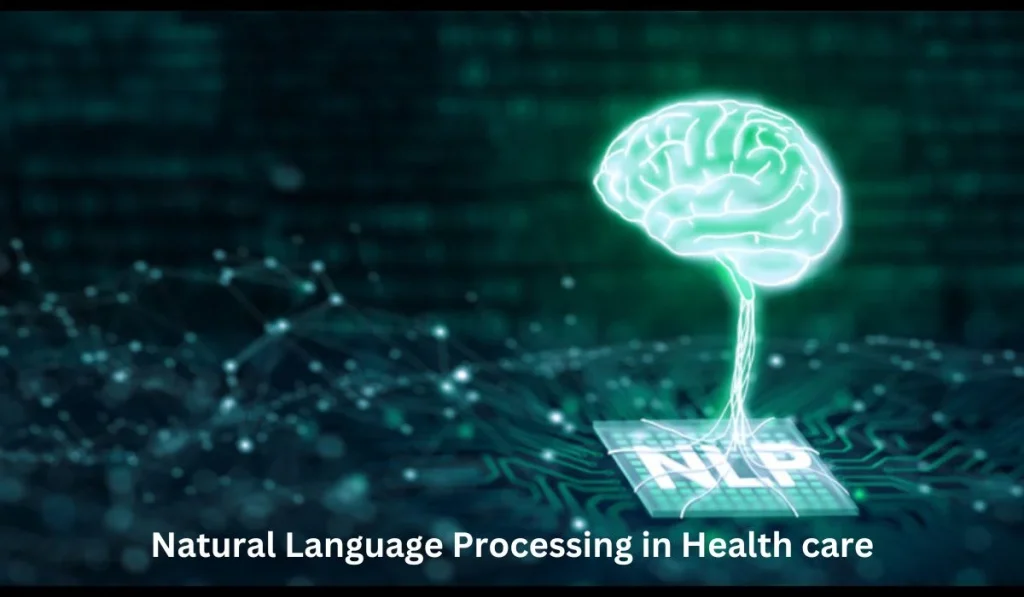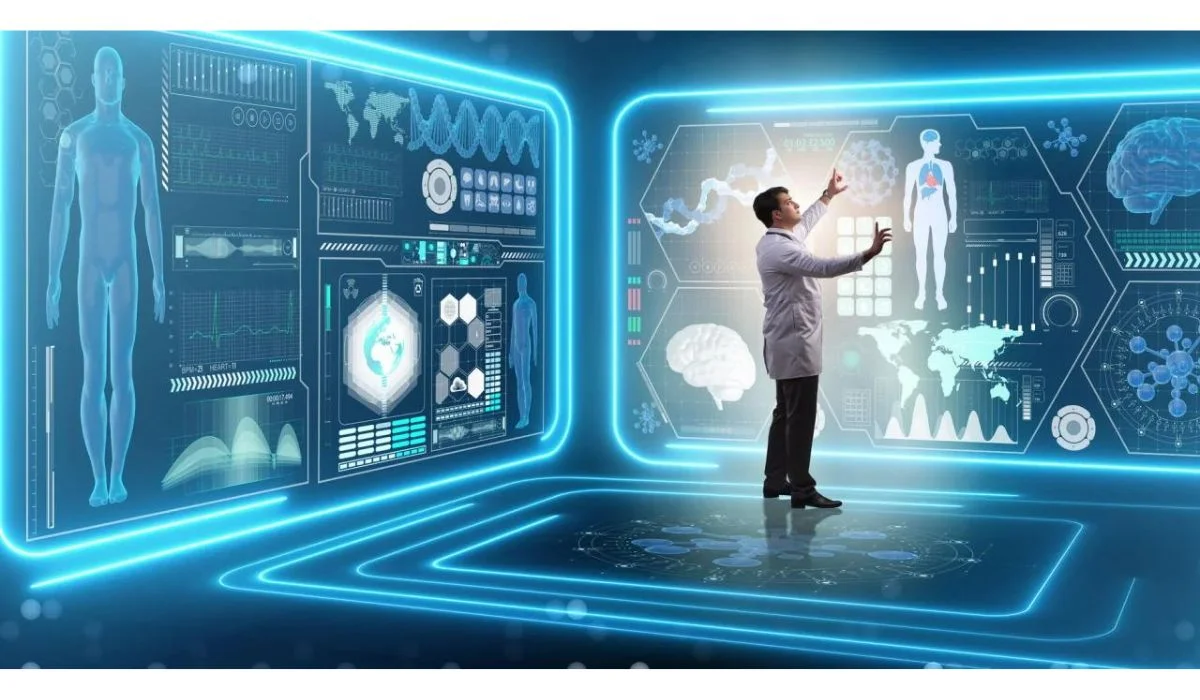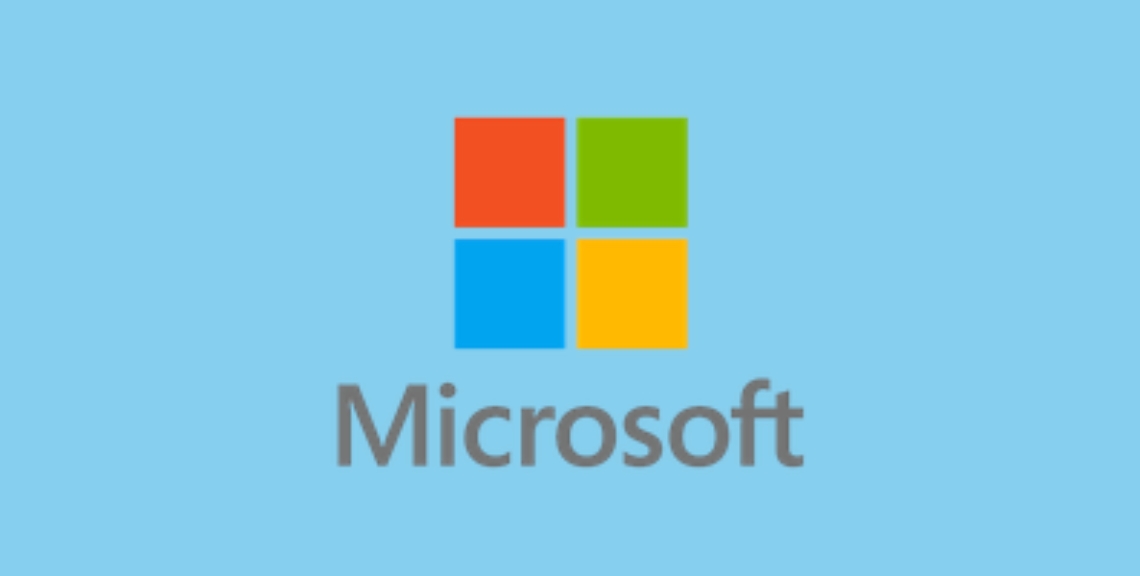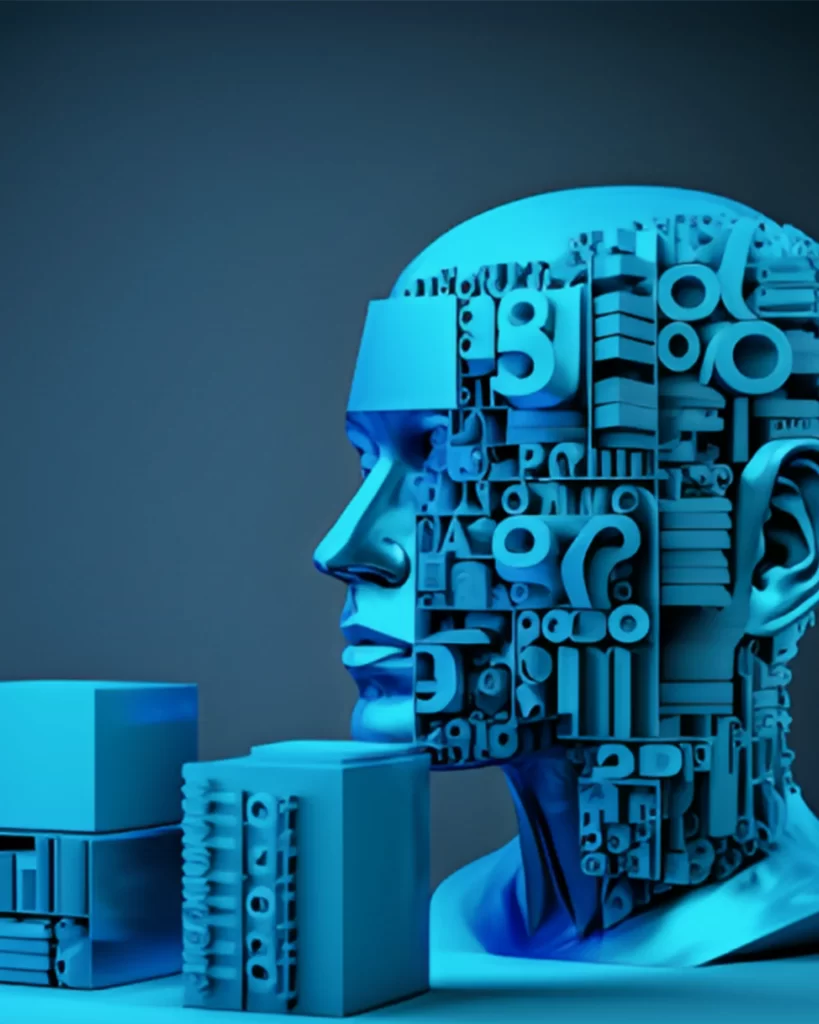Introduction to Natural Language Processing In Healthcare
Natural Language Processing (NLP) is a field of artificial intelligence (AI) that focuses on the interaction between computers and human language. In the healthcare industry, NLP plays a crucial role in analyzing and extracting meaningful insights from vast amounts of medical text data. From clinical documentation and coding to disease surveillance and patient monitoring, NLP offers a wide range of applications that can revolutionize healthcare delivery. In this article, we will explore the various ways NLP is transforming the healthcare landscape, the tools and technologies used in NLP for healthcare applications, and the challenges and future prospects of this exciting field.

NLP for Healthcare Applications
Clinical Documentation and Coding
One of the primary applications of NLP in healthcare is clinical documentation and coding. Medical records are typically filled with unstructured text, making it challenging to extract relevant information efficiently. NLP algorithms can automatically process and analyze clinical notes, extracting key data such as patient demographics, medical history, diagnoses, procedures, and medications. This enables healthcare providers to streamline their coding and billing processes, reducing errors and improving reimbursement accuracy.
Clinical Decision Support Systems
NLP can also enhance clinical decision support systems by providing real-time access to relevant medical literature and research. By analyzing medical text and extracting relevant information, NLP algorithms can assist healthcare professionals in making evidence-based decisions. For example, NLP can help identify potential drug interactions, suggest appropriate treatment options based on patient history, and provide alerts for potential adverse events.
Disease Surveillance and Outbreak Detection
Early detection and timely response to disease outbreaks are crucial in public health. NLP techniques can analyze medical text data from various sources, including electronic health records and social media, to identify patterns and signals of potential outbreaks. By monitoring symptoms, geographical locations, and other relevant information, NLP algorithms can help public health agencies and healthcare providers respond quickly and effectively to emerging health threats.
Patient Monitoring and Risk Prediction
NLP-based analysis of medical text data can assist in patient monitoring and risk prediction. By analyzing patient records, including progress notes, laboratory results, and radiology reports, NLP algorithms can identify patients at high risk for specific conditions or adverse events. This allows healthcare providers to intervene proactively, implement preventive measures, and improve patient outcomes.
Tools & Technologies for Natural Language Processing Health
Several tools and technologies are used in NLP for healthcare applications. These include:
Natural Language Processing (NLP) Algorithms
NLP algorithms form the backbone of NLP applications. These algorithms enable machines to understand and process human language by applying linguistic rules, statistical models, and machine-learning techniques. NLP algorithms can perform tasks such as language translation, sentiment analysis, entity recognition, and information extraction.
Named Entity Recognition (NER)
NER is a specific NLP technique used to identify and classify named entities in text data. In healthcare, named entities can include medical conditions, medications, procedures, anatomical terms, and more. NER algorithms can extract these entities from unstructured medical text, enabling further analysis and information retrieval.
Text Mining and Information Extraction
Text mining techniques, coupled with information extraction algorithms, enable the extraction of relevant information from unstructured medical text data. This can include extracting data such as patient demographics, medical codes, treatment plans, and clinical outcomes. Text mining and information extraction help convert unstructured medical text into structured and actionable data.
Sentiment Analysis
Sentiment analysis is the process of determining the sentiment or emotional tone of a piece of text. In healthcare, sentiment analysis can be used to analyze patient feedback, social media posts, and reviews to gain insights into patient experiences, satisfaction levels, and sentiment toward specific treatments or medications. This information can be valuable in improving healthcare services and patient engagement.
Machine Learning and Deep Learning Models
Machine learning and deep learning models are extensively used in NLP for healthcare applications. These models learn from large volumes of annotated data to make predictions or extract information from new, unseen data. They can be trained to perform tasks such as medical text classification, entity recognition, summarization, and question-answering, among others.
Features of Natural Language Processing in Healthcare:
Analyzing Medical Text for Clinical Applications
- Unstructured Text Analysis: NLP in healthcare enables the analysis of unstructured medical text data, such as clinical notes, research articles, patient records, and social media posts. This allows healthcare organizations to leverage valuable information from diverse sources.
- Efficient Data Processing: NLP algorithms can process large volumes of medical text data at a faster rate than humans, improving the efficiency of data analysis and decision-making processes in healthcare.
- Medical Code Extraction: NLP techniques can extract medical codes, such as ICD-10 (International Classification of Diseases) or CPT (Current Procedural Terminology) codes, from text data. This facilitates accurate coding and billing processes in healthcare organizations.
- Entity Recognition: NLP algorithms can recognize and extract important entities from medical text, including medical conditions, medications, procedures, anatomical terms, and more. Additionally, this enables better understanding and organization of medical information..
- Semantic Understanding: NLP in healthcare, moreover, focuses on understanding the meaning and context of medical text. By analyzing the relationships between words and phrases, NLP algorithms can effectively grasp the semantic nuances, consequently improving accuracy in data interpretation.
- Clinical Decision Support: Moreover, NLP can be integrated into clinical decision support systems, thereby providing healthcare professionals with access to relevant medical literature, treatment guidelines, and research findings. Consequently, this integration enhances clinical decision-making and ultimately improves patient outcomes.
- Patient Monitoring: NLP algorithms, in addition, can analyze medical text data to monitor patient progress, detect early signs of disease progression, or identify patients at risk for specific conditions. Consequently, this proactive monitoring enables timely interventions and improved patient care.
- Adverse Event Detection: NLP techniques, furthermore, can identify signals and patterns in medical text data that may indicate adverse events or drug side effects. As a result, this assists healthcare organizations in monitoring drug safety and taking necessary actions to ensure patient well-being.
Step Involved in Natural Language Processing in Healthcare:
Analyzing Medical Text for Clinical Applications
- Data Collection in NLP Healthcare: Gathering diverse medical text data, including EHRs, clinical notes, research articles, and social media.
- Data Preprocessing: Ensuring Quality and Suitability, Removing irrelevant info, standardizing format and terminology, and handling noise and errors in data.
- Text Tokenization: Text tokenization breaks text into smaller units, forming the foundation for analysis and processing.
- Stopword Removal: Common, meaning-lacking words like “the,” “is,” and “and” are removed to reduce noise and improve NLP efficiency.
- Part-of-Speech Tagging: Part-of-speech tagging assigns grammatical tags to words, helping understand text structure through noun, verb, adjective, and adverb identification.
- Named Entity Recognition: Named Entity Recognition (NER) identifies and classifies named entities in text, aiding extraction of valuable information from unstructured content.
- Text Classification: Text classification categorizes text into predefined categories, aiding sentiment analysis, disease classification, and patient message triaging in healthcare.
- Information Extraction: Information extraction extracts specific data from text, converting unstructured content into structured information, e.g., medication names, dosage, and demographics.
- Sentiment Analysis: Sentiment analysis analyzes healthcare text to understand patient feedback, reviews, and social media posts.
- Text Summarization: Text Summarization aims to condense a piece of text while retaining its key information. Summarization techniques can be used to generate concise summaries of medical research articles, patient records, or clinical guidelines.
- Machine Learning Models: Machine learning models are trained on labeled data to perform NLP tasks, learning patterns, and making predictions.
- Validation and Evaluation: Comparing NLP algorithm output with reference standards to assess accuracy and effectiveness.
- Integration with Clinical Applications: Integrating NLP results into clinical systems for better decision support and data analytics.
- Continuous Improvement: Importance of Updating NLP Models in Healthcare for Better Results and Progress.
- Ethical considerations: Patient privacy, data security, consent, and transparency in NLP algorithm limitations.
The Best Healthcare Products:
- Amazon Comprehend Medical: It is a cloud-based service offered by Amazon Web Services (AWS) that uses NLP to extract relevant medical information from unstructured text, such as clinical notes, medical records, and research papers. It can identify medical conditions, medications, dosage, and more.
- IBM Watson Health: IBM offers various NLP-based tools and services for healthcare. Watson Health NLP capabilities enable the extraction and analysis of medical concepts from clinical documents, electronic health records (EHRs), and medical literature. It can assist in clinical decision support, population health management, and medical research.
- Senseforth.ai: Senseforth.ai is an AI-powered conversational platform that utilizes Natural Language Processing (NLP) to understand and respond to human queries in a human-like manner. It offers intelligent chatbots and virtual assistants for various industries, including healthcare, banking, and retail.
- Chatbot: The Healthcare NLP Chatbot is an advanced language model designed to assist users in the healthcare domain. It utilizes natural language processing techniques to understand and respond to queries, providing accurate and reliable information to improve patient care and support healthcare professionals.
- Health Language, a Wolters Kluwer company: Health Language offers NLP-powered solutions for clinical documentation improvement (CDI) and coding. Their tools automate the extraction of key clinical concepts and facilitate accurate coding, billing, and reimbursement processes in healthcare organizations.
Benefits
Improved Efficiency and Accuracy of Medical Data Analysis
NLP algorithms can process and analyze vast amounts of medical text data at a significantly faster rate than humans. This leads to improved efficiency in clinical documentation, coding, and data analysis. Moreover, by automating these processes, NLP reduces the risk of human errors, ensuring higher accuracy in medical data analysis.
Enhanced Clinical Decision-Making
NLP-based clinical decision support systems, consequently, provide healthcare professionals with access to a wealth of medical literature and research. As a result, this empowers them to make more informed decisions based on the latest evidence. Furthermore, by integrating NLP into clinical workflows, healthcare providers can enhance patient care and improve treatment outcomes.
Early Detection of Diseases and Adverse Events
NLP algorithms can identify patterns and signals in medical text data that may indicate the early onset of diseases or adverse events. By detecting these signals early, healthcare providers can intervene promptly, initiate appropriate treatments, and potentially prevent complications or adverse outcomes. This early detection capability can significantly improve patient outcomes and reduce healthcare costs.
Personalized Medicine and Patient Care
NLP can contribute to the advancement of personalized medicine and patient care through its ability to analyze patient data, medical records, and relevant research. Moreover, by utilizing NLP algorithms, valuable insights can be obtained regarding individual patient characteristics, treatment effectiveness, and potential risks. This innovative approach holds great potential in revolutionizing healthcare by harnessing the power of natural language processing. This allows healthcare providers to tailor treatments and interventions to each patient’s unique needs, improving overall patient outcomes.
Challenges and Limitations of NLP in Healthcare
While NLP holds immense potential in healthcare, it also faces certain challenges and limitations:
Privacy and Security Concerns
Furthermore, as NLP relies on analyzing sensitive medical text data, ensuring patient privacy and data security is of utmost importance. To achieve this, healthcare organizations must implement robust data protection measures, comply with privacy regulations, and employ anonymization techniques to safeguard patient information.
Language and Cultural Variations
NLP algorithms may face challenges in understanding and processing different languages, dialects, and cultural nuances. Moreover, variations in medical terminologies, language expressions, and healthcare practices across regions and cultures can pose difficulties for NLP applications. To overcome these challenges, addressing these variations requires comprehensive language resources and models trained on diverse datasets.
Ambiguity and Context Understanding
Language ambiguity and the need for context understanding present challenges for NLP algorithms. Additionally, medical text data often contains abbreviations, acronyms, and complex terms, which can have multiple interpretations. Therefore, NLP models must be designed to disambiguate such terms and accurately capture the intended meaning based on the context.
Data Quality and Standardization
The quality and standardization of medical text data can vary significantly across different sources and healthcare systems. Inaccurate or incomplete data can adversely affect the performance of NLP algorithms. Data preprocessing and cleaning techniques, along with standardized data formats and terminologies, are necessary to ensure reliable and accurate NLP results.
Case Studies and Success Stories
NLP in Clinical Coding and Billing
The adoption of NLP in clinical coding and billing has shown promising results. Moreover, by automating the coding process, NLP algorithms have reduced coding errors and improved coding accuracy. Consequently, this has led to more efficient reimbursement processes, ensuring that healthcare providers receive appropriate compensation for the services rendered.
NLP for Drug Safety Monitoring
NLP has been instrumental in drug safety monitoring by analyzing adverse event reports, medical literature, and social media data. Moreover, by identifying potential drug side effects or adverse reactions, NLP algorithms enable regulatory agencies and pharmaceutical companies to take necessary actions to ensure patient safety.
NLP in Electronic Health Record Analysis
Electronic health records (EHRs) contain vast amounts of valuable medical information. NLP algorithms can analyze EHRs to extract critical data, such as patient demographics, diagnoses, medications, and treatment outcomes. This facilitates retrospective research, population health analysis, and quality improvement initiatives.
Future Trends and Developments
The future of NLP in healthcare holds immense possibilities. Some of the key trends and developments to watch out for include:
Integration of NLP with Other Emerging Technologies
Healthcare systems are likely to integrate NLP with other emerging technologies, such as robotic process automation, virtual assistants, and Internet of Things (IoT) devices, to create more intelligent and context-aware healthcare systems.Additionally, this integration will enhance patient interactions, streamline workflows, automate administrative tasks, and facilitate seamless data exchange and interoperability.
As healthcare increasingly adopts NLP, it becomes imperative to address several ethical considerations regarding data privacy, informed consent, and bias in algorithms.
Advancements in Language Models and Semantic Understanding
Language models, such as transformer-based models, have significantly advanced the capabilities of NLP. Future developments in language models will focus on improving semantic understanding, context awareness, and domain-specific knowledge. Furthermore, this will enable a more accurate and contextually relevant analysis of medical text data.
Conclusion
NLP has emerged as a powerful tool in healthcare, revolutionizing the way medical text data is analyzed and utilized. Moreover, from clinical documentation and coding to clinical decision support systems and disease surveillance, NLP offers a wide range of applications that enhance efficiency, improve patient outcomes, and drive advancements in personalized medicine. While challenges and limitations exist, ongoing developments in tools, technologies, and ethical frameworks will further unlock the potential of NLP in healthcare, paving the way for a more intelligent and data-driven healthcare ecosystem.









